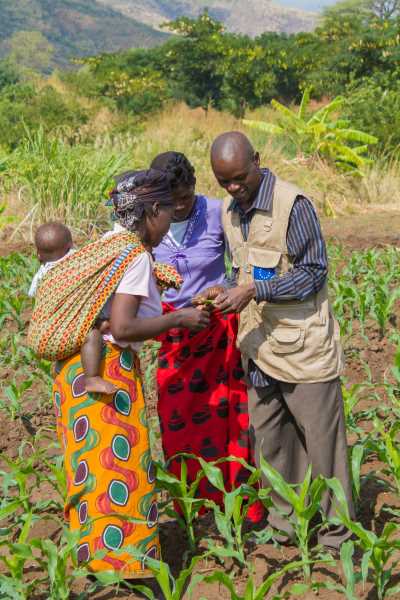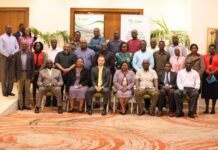World Neighbors, a community-based international development organization committed to long-term involvement in villages and other remote areas, has expanded its work in Africa to Malawi.
Located in southeastern Africa to the south of Tanzania, Malawi is one of the poorest landlocked countries in sub-Saharan Africa. Its population of 20.5 million is growing at three percent per year and is expected to reach 45 million by 2050. Over half of the population currently lives on less than $2 per day, with 25% classified as ultra-poor.
The situational analysis of the country proves that it meets the two factors that determine whether WN will work in a country or region of a country: need and opportunity. The country is poor, the economy is agriculture-based, but the country is food insecure, distances to health facilities are long, and gender inequalities (including widow inheritance known in some communities as ‘chokolo’) are rampant. Hence, there is opportunity for WN to work with identified communities in the Lower Shire region to transform their socio-economic status to become food secure, increase incomes, improve health conditions and improve the management of natural resources.
World Neighbors is working with the community groups to form an umbrella organization with which it will partner to implement development activities. The country program is focused on the following thematic areas.
Sustainable agriculture and rural livelihoods: Activities under this theme will include crop production, livestock husbandry and income generation/entrepreneurship. Under crops, WN will impart improved agronomic skills to enable households to increase their outputs of maize, rice, cassava, potatoes, beans and bananas as well as introduce high value crops for income generation. Livestock husbandry will focus on improving the quality and breeds of goats, pigs, sheep and poultry that are currently kept by the community. Incomes are currently low and livelihood sources limited. Currently, a form of savings and loaning mechanism popularly known as ‘Bank Nkhonde’ exists through the groups that are formed by members to mobilize financial resources for loaning to members. WN plans to work with these groups using our immensely successful savings and credit model and train them in entrepreneurial skills in order to diversify their livelihood sources and increase incomes.
Community based natural resource management: Malawi is one of the most densely populated countries in Africa. For this reason, there is intense pressure on the natural resource base to sustain the rapidly growing population. WN plans to work with communities to conserve natural resources, specifically water, vegetation and land. We shall encourage and facilitate the conservation and protection of natural springs and conduct trainings on how to establish tree nurseries to generate seedlings for afforestation and reforestation programs.
Community and reproductive health: There is high disease burden and morbidity in the country caused by endemic diseases such as malaria, diarrhea, cholera, flu and respiratory infections. Maternal and child mortality rates are high and the rate of pre- and post-natal clinic attendance as well as the low uptake of family planning needs improvement. WN will identify and train community-based health volunteers to raise awareness on the causes, prevention and treatment of various diseases. In addition, training on nutrition and water and sanitation will be stepped up. WN will partner with the Department of Health and other stakeholders to organize regular mobile health clinics in order improve access to health services.
Capacity strengthening of community structures: WN aims to strengthen the local structures to continue working with communities long after it has phased out its interventions. Strengthening of these structures will be at two levels. First, the umbrella organization, which is WN’s partner, will be imparted with technical and organizational skills necessary for sustaining WN’s interventions. Second, the base groups that are members of the umbrella organization will in turn also have their capacities strengthened to serve their members effectively and efficiently. WN will ensure that women are elected in leadership positions of these community structures in order to address the current inequality in decision making at both the household and community levels.









